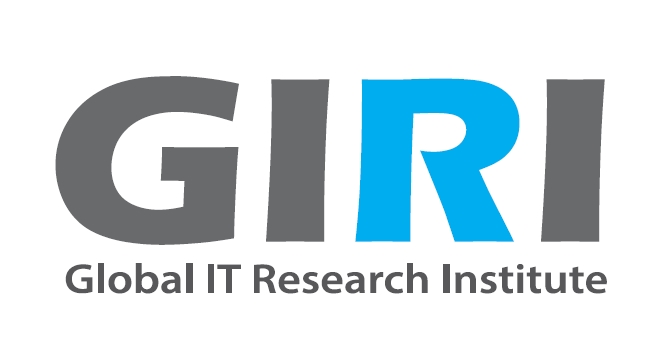Now 196 visitors
Today:598 Yesterday:1180
Total: 620
413S 88P 97R
2026-03-05, Week 10 |
| Member Login |
| Welcome Message |
| Statistics |
| Committee |
| TACT Journal Homepage |
| Call for Paper |
| Paper Submission |
| Find My Paper |
| Author Homepage |
| Paper Procedure |
| FAQ |
| Registration / Invoice |
| Paper Archives |
| Outstanding Papers |
| Author Homepage |
| - Paper Procedure |
| - Journal Procedure |
| - Presentation Tips |
|
| Program / Proceedings |
| Program with Papers |
| Plenary Session |
| Tutorial Session |
|
| Presentation Platform |
| Hotel & Travel Info |
| About Korea |
| Accommodation |
| Transportation |
| VISA |
| Other Infomation |
|
| Photo Gallery |
| Scheduler Login |
| Seminar |
| Archives Login |
|
| Sponsors |

|

|

|

|

|

|

|

|

|

|

|

|
|
|
|
|
|
2024
 |
Title : Decoding the Logistics Intelligence Spectrum: a tutorial on Artificial Intelligence in Smart Logistics |
|
Time : 15:30 Feb. 04 (Sun) 2024 |
|
Speaker : Prof. HEE-CHEOL KIM, PhD. Head of College of AI Convergence, Inje University, Korea (south)
HEE-CHEOL KIM received the B.Sc. degree from the Department of Mathematics, the M.Sc. degree from the Department of Computer Science, Sogang University, South Korea, and the Ph.D. degree in the Department of Numerical Analysis and Computing Science from Stockholm University, Sweden, in 2001. He is currently a Professor with the Department of AI Software and the Head of College of AI Convergence, Inje University, South Korea. He is also the President of Korea Institute of Information and Communication Engineering. He has published more than 200 papers in journals and conference proceedings. His research interests include machine learning, computer vision, digital healthcare, and smart logistics.
Abstract : The tutorial delves into the foundational aspects of AI in logistics, encompassing machine learning, deep learning, and the crucial steps of data collection and preprocessing.
The application of AI in basic logistics functions is elucidated, with a focus on route optimization and the role of AI in demand forecasting and inventory management. The tutorial then advances to discuss how AI enhances decision-making processes, providing insights into real-time analytics for decision support and intelligent risk management in logistics.
Sensor integration and the Internet of Things (IoT) take center stage as the tutorial explores leveraging sensor data for heightened visibility and the impact of IoT devices on improving overall logistics efficiency. The tutorial progresses into advanced AI techniques for logistics optimization, featuring topics like reinforcement learning and evolutionary algorithms to address complex challenges.
Big data analysis emerges as a critical theme, highlighting the strategic use of data insights to enhance efficiency and optimize logistics processes. Natural Language Processing (NLP) is explored for its role in communication and analysis within the logistics domain, while data mining techniques are employed to extract valuable insights for optimization.
The concluding segments forecast future trends in smart logistics with AI, examining emerging technologies and their potential impact. Interactive hands-on sessions, including practical demonstrations and exercises, are incorporated to ensure participants gain both theoretical knowledge and practical skills.
|
 |
Title : Anomalies Detection in Industrial Time Series Data Using Machine Learning Algorithms |
|
Time : 15:30 Feb. 04 (Sun) 2024 |
|
Speaker : Prof. Babu Kaji Baniya, PhD. Computer Science and Information Systems, Bradley University, Peoria Illinois.USA
Babu Kaji Baniya holds a B.E. degree in Computer Engineering from Pokhara University, Nepal, which he obtained in 2005. He further pursued his education and completed an M.E. and Ph.D. in Department of Computer Science and Engineering from Chonbuk National University, Republic of Korea in 2015. Following his doctoral studies, he gained valuable experience as a postdoctoral researcher in the Department of Computer Science and Biomedical Engineering at the University of South Dakota. He then served as an assistant professor in the Department of Computer Science and Digital Technologies at Grambling State University, Louisiana. Currently, he holds the position of assistant professor in the Department of Computer Science and Information Systems at Bradley University, located in Peoria, Illinois. Dr. Baniya was awarded with the National Science Foundation grant in 2021 for his research on “iMed-Sec: Exploring Hardware-Assisted Solutions for Energy-Efficient Low-Overhead Security and Privacy for the Internet-of-Medical-Things”. He also received the Caterpillar fellowship 2023 under the title “Deep based Skin Cancer Detection and Classification”. Throughout his career, he has taught a wide range of Computer Science courses at both the graduate and undergraduate levels. His research interests span several key areas, including audio signal processing, information retrieval, cybersecurity, bioinformatics, IoT, and machine learning His research interests encompass various areas, such as audio signal processing, information retrieval, cybersecurity, bioinformatics, IoT, and machine learning. His specific research focus involves applying machine learning and deep learning algorithms to secure the Internet of Medical Things (IoMT). Dr. Baniya is also a member of IEEE.
Abstract : Anomalies Detection in Industrial Time Series Data Using Machine Learning Algorithms
The consistent evolution of new technologies brings advancements over previous generations, providing increased maneuverability, enhanced automation through AI control, and improved communication capabilities, whether through wired or wireless means. The remote control of systems, facilitated by wired or wireless connectivity, necessitates the development of innovative concepts to address existing security issues and confront emerging challenges. These technologies utilize diverse scientific methods, processes, algorithms, and systems to extract crucial knowledge or features from data in various forms, including structured, semi-structured, and unstructured data. Employing established techniques such as machine learning (ML), deep learning (DL), statistics, and data visualization, these technologies unveil previously undiscovered patterns, distributions, trends, and relationships among variables. However, these advancements concurrently raise security concerns and introduce additional vulnerabilities to industrial networks and protocols. As technologies continue to progress, they often come with timestamp information. In our study, we applied the seasonal autoregressive integrated moving average to detect anomalies in a time series industrial Internet of Things dataset (IIoT), finding it well-suited for anomaly detection in industrial data. Additionally, we employed long short-term memory (LSTM) to compare the results, and both approaches demonstrated high efficacy in detecting anomalies in IIoT with a very high detection rate.
|
|
|
|
|
ⓒ Copyright 1999. ICACT (ISSN 1738-9445) & Global IT Research Institute(GiRI) All rights Reserved. Contact: office (at) icact . org Tel:+82-70-4146-4991
|
1713 Obelisk, 216 Seohyunno, Bundang-gu, Sungnam Kyunggi-do, Republic of Korea 13591
Business License Number : 220-82-07506, President: Thomas ByeongNam Yoon Ph.D. |
|
(13591)경기도 성남시 분당구 서현로 216 오벨리스크 1713호
(사)글로벌IT연구회 사업자등록번호 : 220-82-07506 대표자 : 윤병남
|
|
| |






